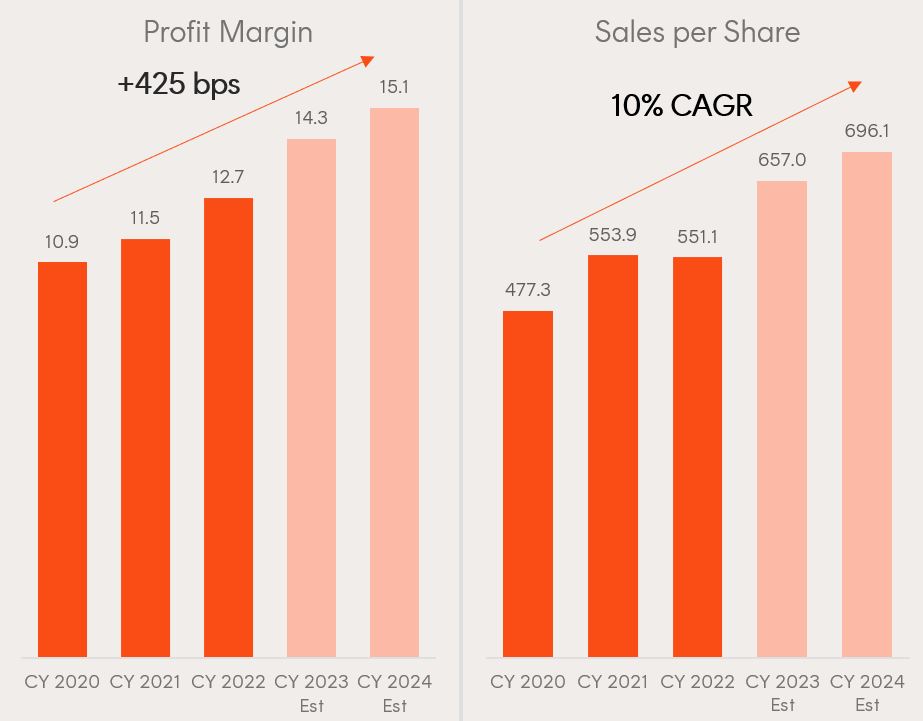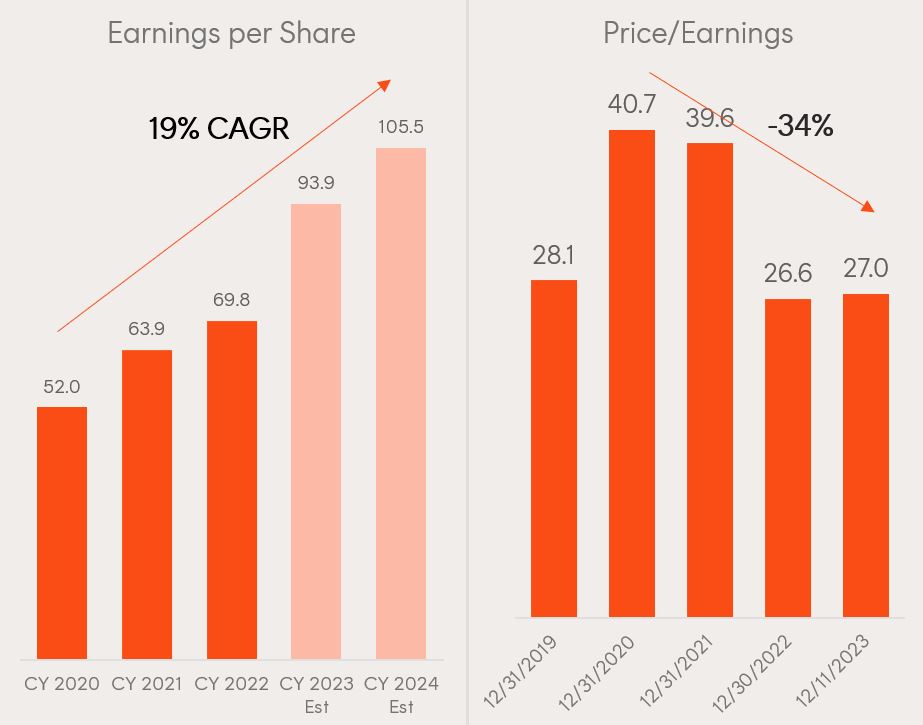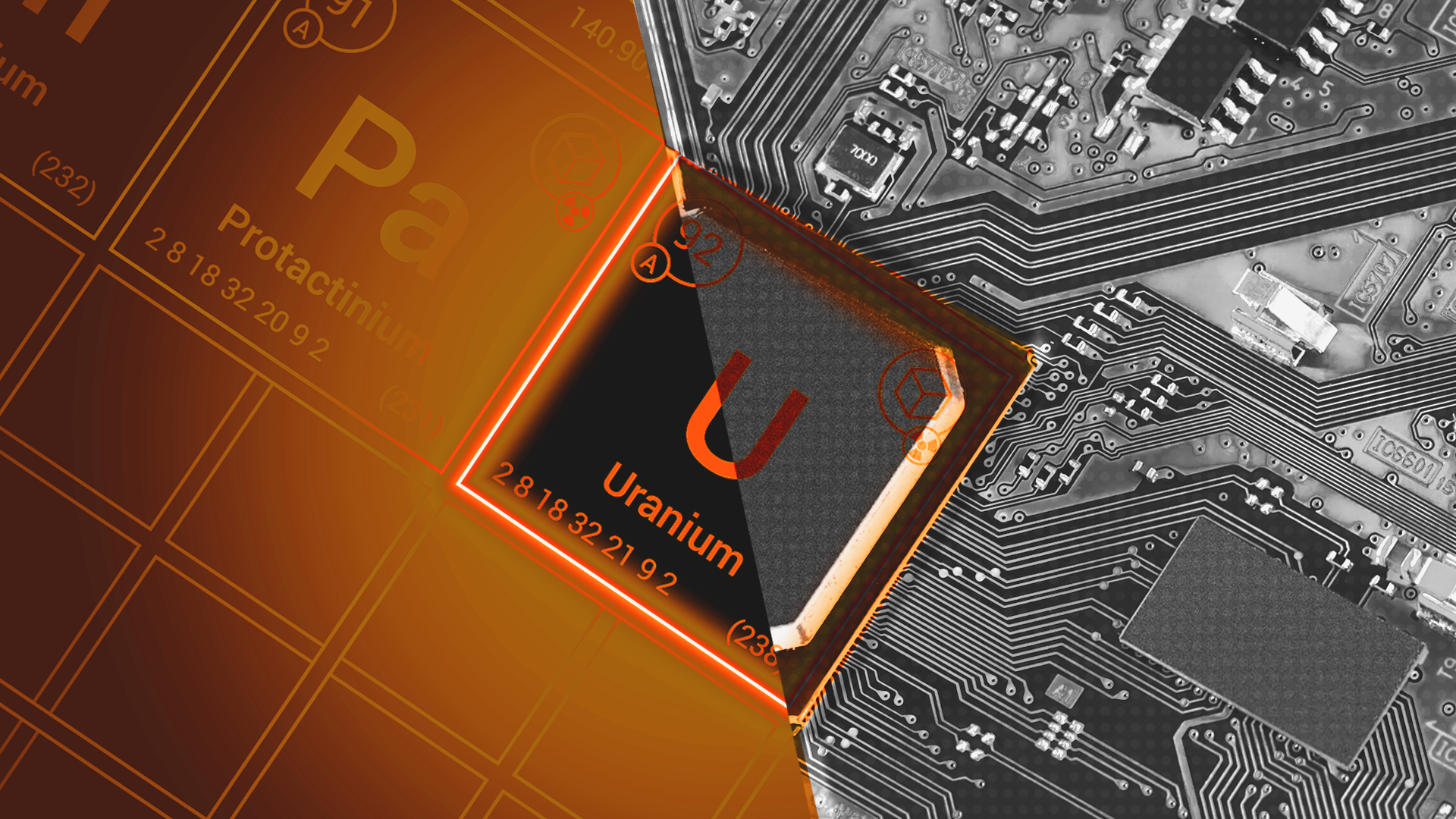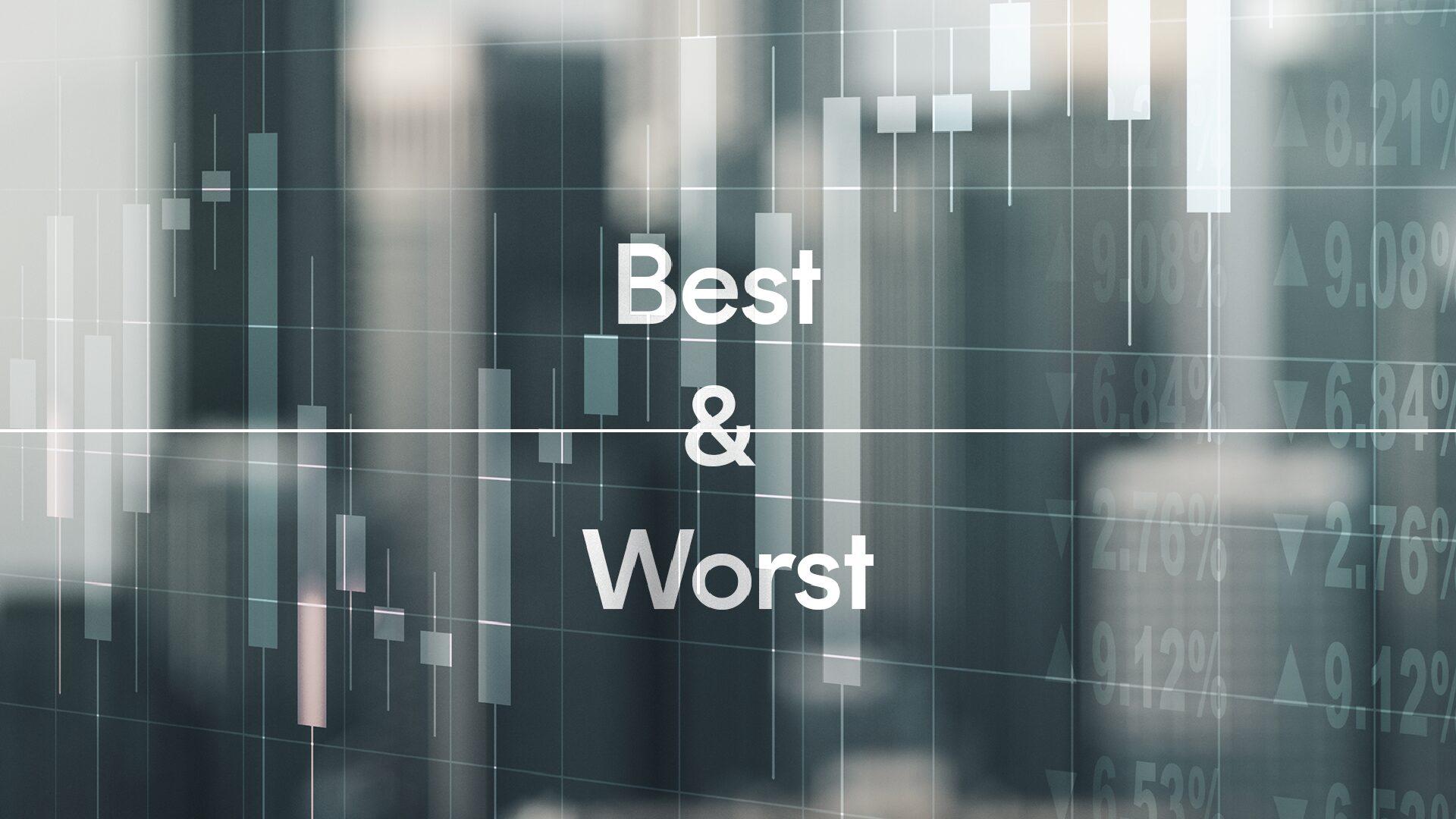

Cameron Gleeson
Betashares Senior Investment Strategist. Supporting all Betashares distribution channels, assisting clients with portfolio construction across all asset classes, and working alongside the portfolio management team. Prior to joining Betashares, Cameron was a portfolio manager at Macquarie Asset Management, Head of Product at Bell Potter Capital, working on JP Morgan’s Equity Derivatives desk and at Deloitte Consulting.
4 minutes reading time
- Thematic
Experienced investors are likely familiar with the core/satellite approach to building a portfolio. Low cost, broadly diversified ETFs can be an effective way to build out the core of your portfolio, but what about the satellite portion?
Thematic ETFs are designed to provide exposure to a range of industries that stand to benefit from long-term, structural megatrends, such as climate change, technological innovation, and demographic change.
With climate change and data security at the front of mind for consumers, governments, and investors alike, these two thematics could be well positioned for revenue growth in the months and years ahead if these long-term transformational trends play out.
Growth in cybersecurity
The recent Medibank and Optus cyber breaches were a reminder of the threat cybercrime poses to the everyday functioning of society. No industry is as necessary to facilitate a safe digitalised future than cybersecurity.
Looking ahead to 2024 and further, the accessibility of artificial intelligence, continued broad digitalisation across industries, and a severe undersupply of private cybersecurity professionals are the biggest trends expected to continue spurring growth for the largest global cybersecurity companies. Strong tailwinds like these have seen Betashares Global Cybersecurity ETF’s (ASX: HACK) index constituents experience fundamental growth with a CAGR of 19% in EPS since 2020.


Source: Nasdaq Global Indexes, Bloomberg as of December 11, 2023.
Betashares Global Cybersecurity ETF (ASX: HACK)
HACK serves as Australia’s longest running and largest global cybersecurity ETF allowing investors to gain exposure to this critical industry. Having returned 19% p.a. over the past five years (to 31 December 2023), HACK has been one of Australia’s best performing ETFs.*
Further, HACK’s performance has historically responded positively to significant cyber incidents and geopolitical events, potentially proving a good proxy for investors to growing cyber threats and the companies defending against them. Consequently, HACK may also provide some level of hedging for investors’ portfolios in cases where an individual company’s share price suffers due falling victim to a cyber-attack.
Quick facts:
- Top five holdings: Broadcom, Crowdstrike, Palo Alto Networks, Infosys, Cisco
- FUM: $850m (Betashares’ largest thematic ETF)
- Index: Nasdaq Consumer Technology Association Cybersecurity Index
- Management cost: 0.67% p.a.**
- Inception date: 30 August 2016
- Investment risks include: market risk, cybersecurity companies risk, concentration risk and currency risk
The nuclear energy renaissance
A new “nuclear renaissance” is emerging, with a 22-country partnership pledging to triple nuclear energy capacity by 2050 at the COP28 climate change conference. Governments from Japan to Europe now view nuclear energy as a necessary part of the energy mix, both to meet their net-zero emissions goals with reliable base load power, and to provide greater energy security in a time of heightened geopolitical tension.
In the 2010s, unfavourable US energy policy and cheap fracked gas undercut the nuclear industry. But a change in sentiment and significant funding and tax credits made available through the Inflation Reduction Act has changed the outlook in the US. This has resulted in a concerted push to extend the life of existing nuclear reactors, and the first new reactor build in the US for decades – the Vogtle Plant in Georgia.
Betashares Global Uranium ETF (URNM)
While there is a compelling long-term investment case for uranium, trying to select individual ASX-listed uranium miners yourself introduces significant stock specific risk. No uranium companies currently rank in the S&P/ASX 100, and all are pre-production – introducing project execution and regulatory risk. URNM is worth considering, it provides diversified exposure to leading uranium miners from across the globe.
Quick facts:
- Top five holdings: Cameco Corp, Kazatomprom, Sprott Physical Uranium Trust, CGN Mining, Uranium Energy Corp
- FUM: $87M
- Index: Indxx North Shore Uranium Mining Index
- Management Costs: 0.69% p.a.**
- Inception date: 8 Jun 2022
- Investment risks include: market risk, sector concentration risk, international investment risk and regulatory risk
There are risks associated with an investment in the Funds, including the specific investments risk noted above. The Funds returns can be expected to be more volatile (ie vary up and down) than a broad global exposure. The Funds should only be considered as a component of a diversified portfolio. For more information on risks and other features of the Funds, please refer to the relevant PDS.
-
URNM
Global Uranium ETF
-
HACK
Global Cybersecurity ETF
* Past performance is not an indicator of future performance. See the fund’s respective webpage at www.betashares.com.au for further performance information.
**Other costs, such as transaction costs, may apply. Refer to the PDS for more information.
This article mentions the following funds
Supporting all Betashares distribution channels, assisting clients with portfolio construction across all asset classes, and working alongside the portfolio management team. Prior to joining Betashares, Cameron was a portfolio manager at Macquarie Asset Management, Head of Product at Bell Potter Capital, working on JP Morgan’s Equity Derivatives desk and at Deloitte Consulting.
Read more from Cameron.




2 comments on this
Re HACK returns. Is the 19 % return from dividends or growth as I didn’t receive any dividends in 2023 and got about 8% return in 2022 so I don’t understand where this
19% comes from. Didn’t get 19% growth either.
Hi David,
Thank you for your comment.
The 19% p.a. return quoted in the article is total annualised returns over 5 years using the change in net asset value per unit from the start date (1 January 2019) to the end date of the specified period (31 December 2023).
These returns are annualised, which takes the average return per annum an investor would have received if investing over that specified full 5-year period. It is important to note that an individual’s returns will vary depending on their investment timeframe.
Please find HACK’s latest factsheet here, which includes information on how the fund has performed over different timeframes and calendar years https://www.betashares.com.au/files/factsheets/adviser/HACK-Factsheet.pdf.
With respect to distributions, these are dependent on income received from the underlying holdings of the fund, and net capital gains realised on rebalancing of the underlying portfolio. Given there was a low dividend yield in 2023 with fees offsetting dividend income, there was no distribution in 2023.
I hope this helps.
Regards,
Dina